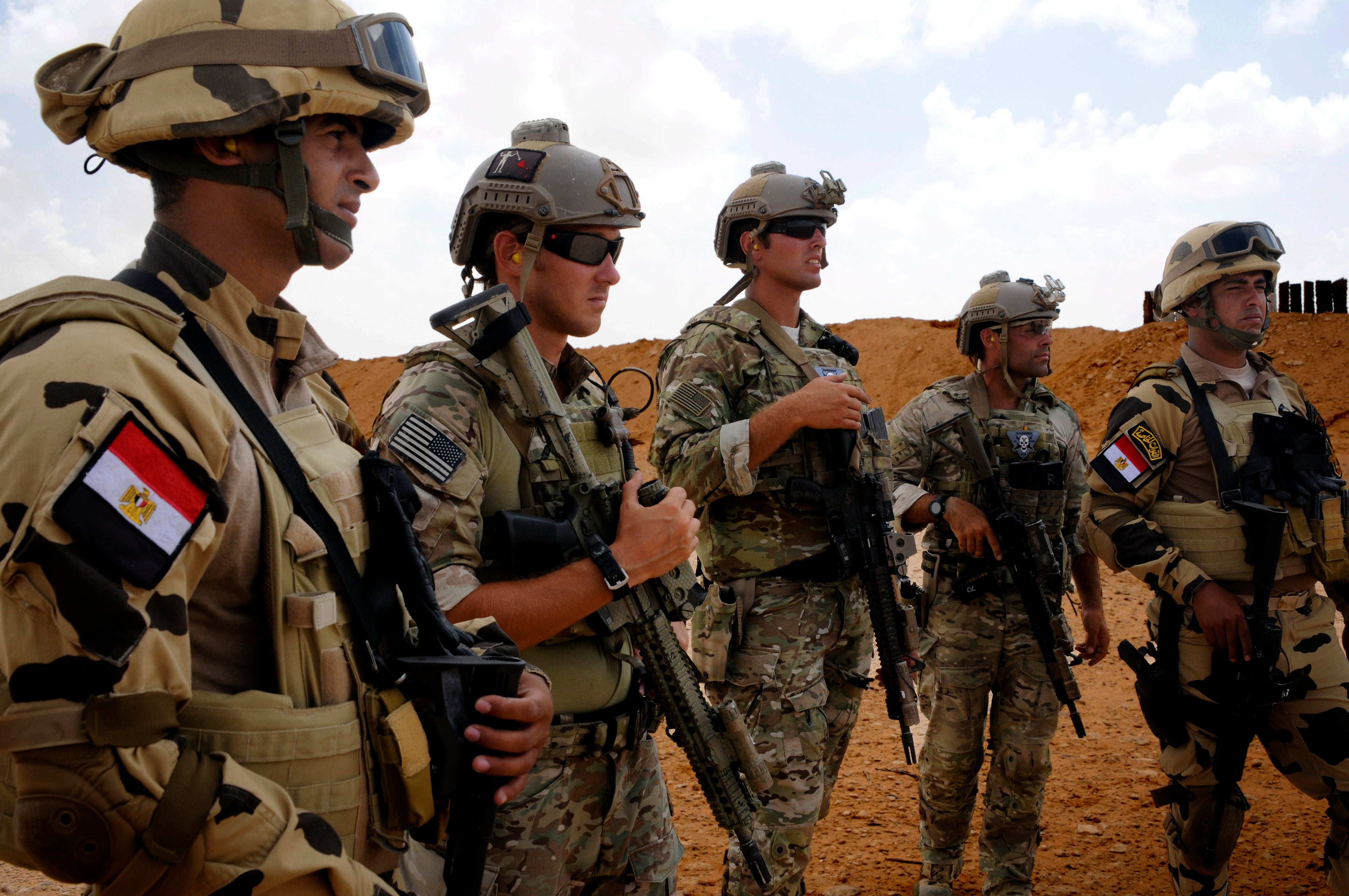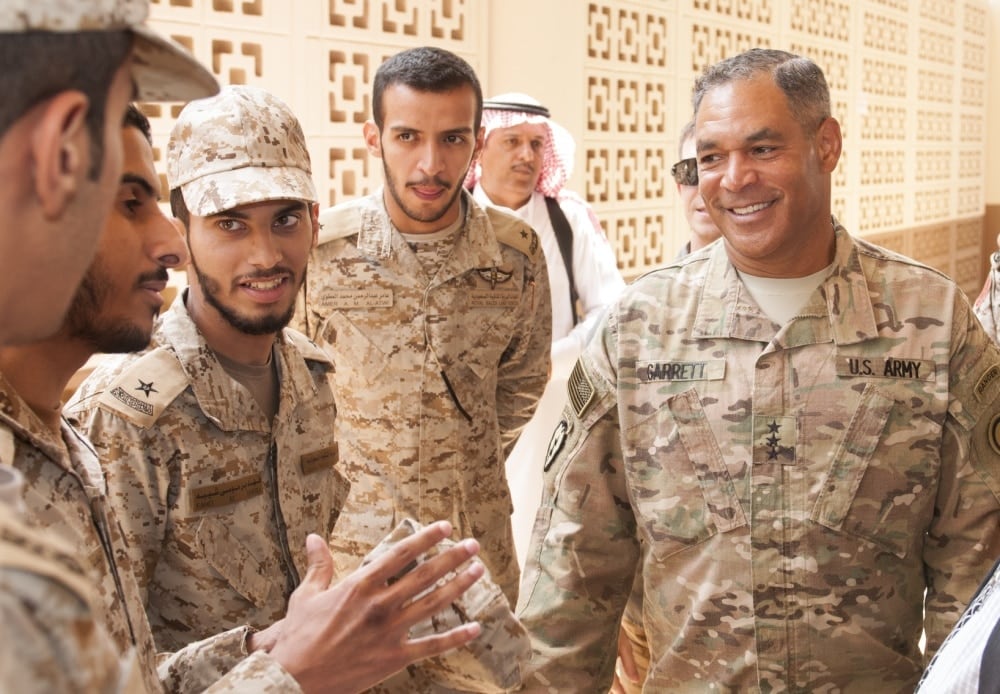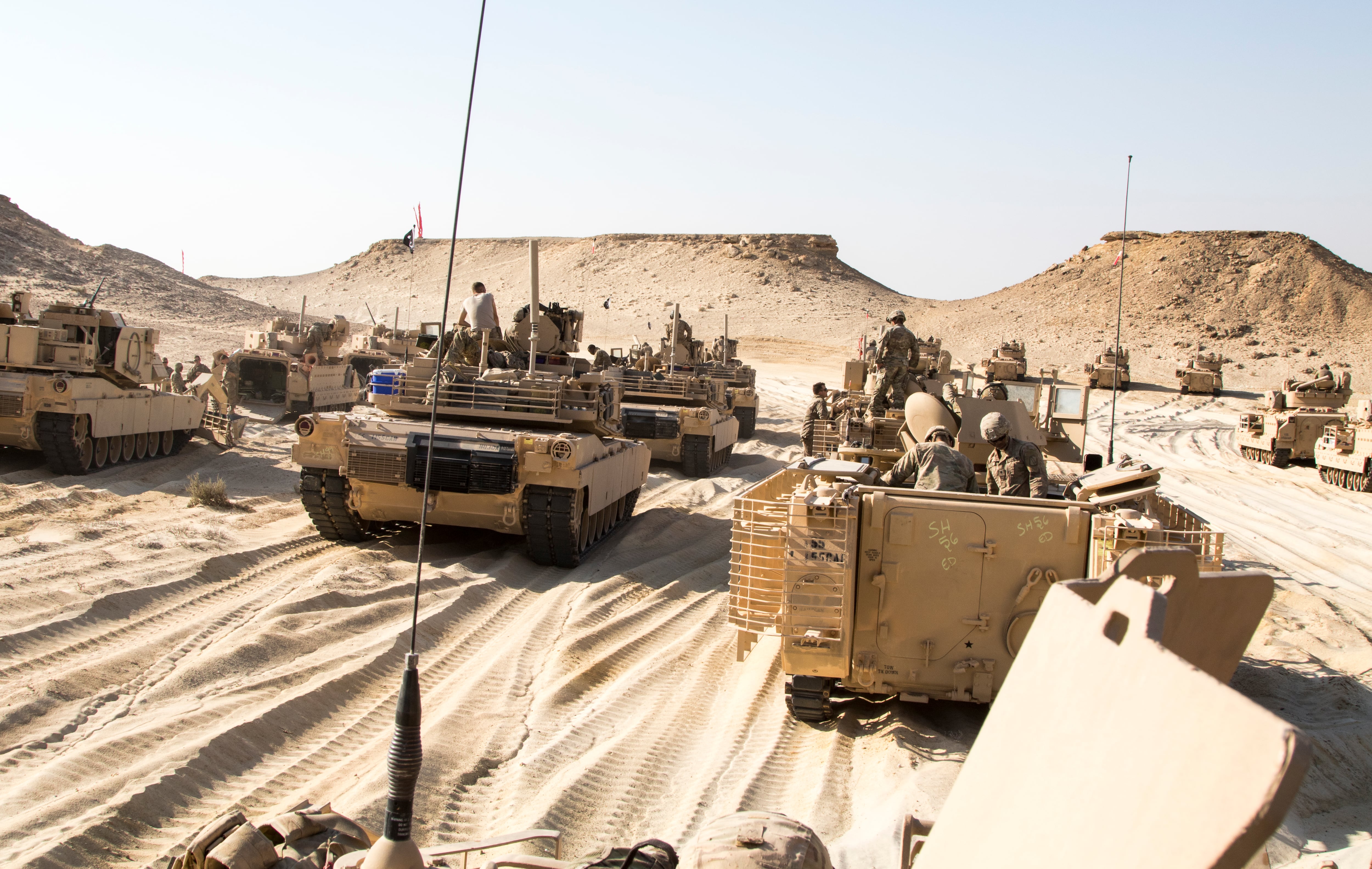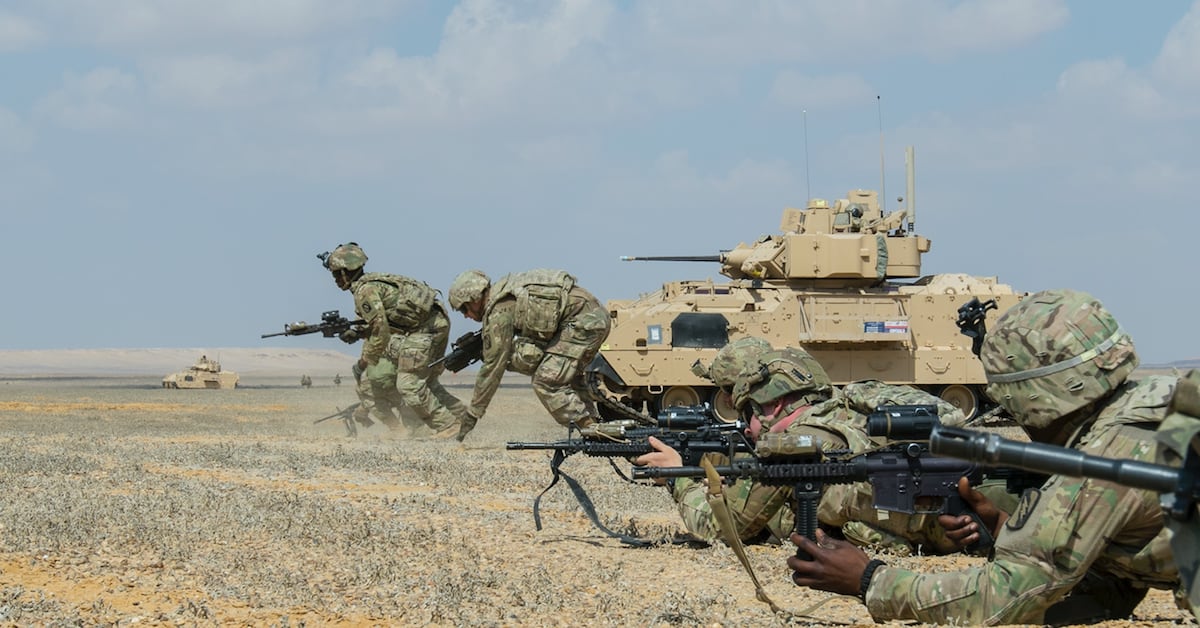U.S. Army Central oversees possibly the most strategically important region in the world today.
The component command, commonly called ARCENT, is helmed by Lt. Gen. Michael Garrett from his headquarters at Shaw Air Force Base, South Carolina.
“Our area of responsibility includes areas of the world that are some of the most volatile and contested," Garett told Army Times in a recent interview. “ARCENT resources and supports ongoing operations in Afghanistan, Iraq and Syria, as well as force protection in the Multinational Force Observers in the Northern Sinai."
At the same time, ARCENT is taking part in a larger U.S. Central Command mission called Operation Spartan Shield, which is designed to deter malign influence and potential adversaries in the area of operations.
Q. Can you explain what Spartan Shield is designed to do?
Operation Spartan Shield is not just about presence, but about deterrence. ... As priorities shift in the theater, some of these formations may be shifted to support higher priority missions. Should national priorities dictate, these formations could deploy outside the region.
Our Task Force Spartan division headquarters, currently the 28th Infantry Division headquarters of the Pennsylvania National Guard and its subordinate brigades, execute our theater security cooperation program with all of our partner nations in the Greater Levant, Middle East, and Central and South Asia regions. First Theater Sustainment Command provides logistical and transportation support across the theater, both for the Army and jointly for our sister components.
For more coverage from the AUSA annual meeting, click here.
Q. How is ARCENT supporting operations in Iraq, Afghanistan and Syria?
Support to Operations Freedom’s Sentinel in Afghanistan and Inherent Resolve in Iraq and Syria is my number one priority as Coalition Forces Land Component Command, and my headquarters will always find a way to say ‘yes’ to any request we receive.
I should also mention that in the areas adjacent to the Joint Operating Areas in Syria and Iraq or in Afghanistan, we are constantly conducting military-to-military cooperation with our partner nation ground forces. This builds their capacity and helps them be more interoperable with us.
For example, we have a number of security cooperation events in Tajikistan, some of which are focused on border security and will improve their capability on the long border they maintain with the Afghan National Security Forces. Likewise, we are cooperating with Jordanian Armed Forces, assisting them with border security, but also with their new rotary wing quick reaction forces and with their rocket artillery.

Q. What is the significance of the CENTCOM area of operations?
CENTCOM has responsibility for one of the most dynamic and vital areas to the U.S. and global economy and is literally at the epicenter of the world, connected to the Indo-Pacific, European, and African theaters. Our transportation systems across air, land and sea are fueled by oil, and there is no getting around the fact that trade and commercial travel have to flow through and across our AOR.
There are three major choke points — the Straits of Hormuz, the Bab-al Mindeb, the Suez Canal — through which flow the resources that support the global economy. Our nation’s strategic interests are served by ensuring the free flow of these resources. Our region also accounts for perhaps the largest number of violent extremist organizations that are active in today’s world, and countering these organizations is part of CENTCOM’s mission.
So, when public opinion polls indicate an increased level of dissatisfaction and fatigue over our continued presence in the region, we need to remind the American people that our interests there remain critical.

Q. The Army rotates an armored brigade combat team to Kuwait to support war zone operations when necessary and train with regional partners. Do those troops face any current challenges?
As I explained earlier, our force packages must be ready to enter the fight on order. The current designated ABCT is the 155th ‘Dixie Thunder’ ABCT from the Mississippi National Guard, the first such National Guard ABCT to deploy in support of this mission. This unit faced a bit of a challenge in that it drew its equipment from pre-positioned stocks in theater. However, this was important because it provided us with a way to exercise the drawing and issuing process, which benefited both our staff and the Army Materiel Command Forward Southwest Asia units who manage that equipment.
Between the training and maintenance that goes into a unit deployment to the theater, when leadership development is taken into account, it could be argued that we are building readiness rather than consuming readiness.
Before we leave the topic of the 155th ABCT, let me just add that our Army Reserve and National Guard have been bearing as much of the burden of fighting since [Sept. 11], but most Americans, including our active force for that matter, don’t understand how much Reserve and National Guard forces sacrifice. ... Simply put, were it not for our reserve components, the Army would have failed long ago.

Q. Are there any shortfalls that need to be dealt with in the coming year?
In ARCENT, one shortfall that we must overcome is the lack of permanent civilian management and staffing across the command, which is the key to continuity, not only in ARCENT, but across the Army.
Our biggest concern each year is that we lose expertise as we rotate individuals to other assignments and then we must train new staff without the benefit of a permanent civilian workforce to ensure that continuity.
For example, Kuwait has been our most steadfast and reliable regional partner, both in terms of countering terrorism and supporting our access and operations in the Arabian Gulf. My Area Support Groups in Kuwait and Qatar have a number of civilian vacancies, but I think people perceive them as merely transit points for individual troops and units in and out of theater, which conjures memories of transient quarters and deployment processing.
Like the other theater armies, we need consistent and predictable streams of resources that we can rely on for long term programs. As we reduce resourcing from Overseas Contingency Operations funds to calibrate our base budget funding in the coming years, proper accounting for our manning, construction, and operating costs will be critical.
Kyle Rempfer was an editor and reporter who has covered combat operations, criminal cases, foreign military assistance and training accidents. Before entering journalism, Kyle served in U.S. Air Force Special Tactics and deployed in 2014 to Paktika Province, Afghanistan, and Baghdad, Iraq.










